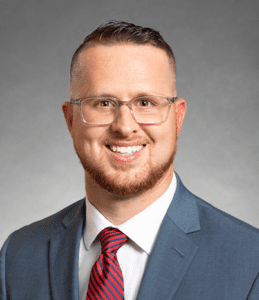For Medical Practices, Lease Negotiations Go Beyond Location
by TIM CRAIG
The classic adage in real estate is “location, location, location.” However, for small medical practices looking to lease, renew or purchase, it can be a little more complicated.
“Leases and lease renewals are not typically conducted on a level playing field. After all, the landlord is in the real estate business and most doctors are not,” says Tyler Harris of Carr Healthcare Realty.
“Successfully negotiating is more than bartering, bluffing, or asking for a good deal. When done properly, a well-negotiated lease can have a dramatic impact on your practice’s profitability.”
When it comes to location, a little research is in order when looking where to establish a practice, according to Dirk Klapprott of Lorio and Associates in Lakeland. “You have to consider the patient population in the area,” he says, “and going beyond demographics, a person should consider the types of insurance that the potential clients in the area may carry.”
The location decision goes beyond the potential patients in the area to other, indirect considerations, says Maria Mahoney of The Mahoney Group in Lakeland. “By and large, a physician’s office is a destination and your patients will find you,” she says. “But nothing beats signage and visibility that you can trade against your marketing costs; that is important.”
Other considerations when seeking out a location include parking, says Mahoney. Physicians’ offices typically require more parking spaces than other businesses, typically 6 to 7 spaces per 1,000 square feet of office space, she says.
When getting a lease, it is important to consider the future beyond the lease terms. An important clause found in a standard lease is the renewal option, Harris says.
“This allows you to extend your lease for a predetermined amount of time by giving your landlord advance written notice,” he says. “Renewal options include terms for specific lease rates, concessions such as free rent and tenant improvement allowance, and whether a new base year for operating expenses will be granted.”
Regardless of whether a renewal clause exists in the original lease, all of these terms are negotiable and play a large role in the financial structure of a lease renewal.
“Basically if you’re doing a renewal, you should try to get whatever you can,” says Klapprott. “Sometimes renewing for a longer lease period will give the option to negotiate over price or the landlord will be willing to pay for upgrades. If you are a good client, it makes sense for them to want you to stay.”
Renewal negotiations should begin as early as 18 months and at least 12 months prior to the end of the lease. “A physician doesn’t want to be bogged down with a renegotiation, so starting early will give them an opportunity to get a feel for what the owner is thinking, how the market is faring and what their options are,” Klapprott says.
Another thing to consider when renewing a lease is moving from renter of the property to owner of the property, says Mahoney, who has coached many local physicians through that process in her 35-year career.
“When you enter into a lease agreement, you have three to five years to establish yourself and to make sure the location is right for you,” says Mahoney. “Along the way, you should have been acquiring enough capital for a deposit to purchase. That should be the end game of your practice.”
Mahoney says that financial institutions find medical purchases, where the buyer is an owner and occupant, very attractive. It’s also beneficial for the long-term health of the practice and the owner.
“At some point, you have to make the practice work for you,” she says, “and that is where a good agent comes in. I try to help them assess their goals and their current situation so that they are empowered to make the best possible decision.”
It’s this kind of assistance that Mahoney, Harris and Klapptropp each stress is vital for physicians walking through the process. Having an agent help — from finding a property to renewing a lease, to buying — gives the physician the satisfaction of knowing there is someone on their side seeing the things they cannot. It also allows them to practice medicine.
“One of the most common mistakes practices make is negotiating without the help of a commercial real estate professional, specifically one who specializes in representing healthcare providers,” Harris says.
“Selecting an expert to represent you provides the leverage needed to receive the best possible lease terms and, typically, landlords are responsible for the commissions making a professional representation is available at no out-of-pocket cost.”






